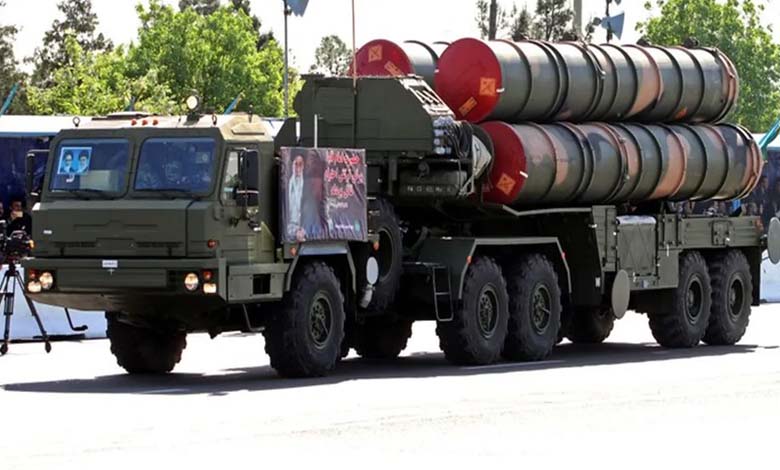Iran’s Fath-360 Missiles to Russia: Military Significance and Potential Impacts

In a move analysts see as a sign of deepening security ties between Moscow and Tehran, Reuters reported — citing officials — that Iran is preparing to deliver short-range ballistic missile launchers to Russia in the near future.
The revelation, neither confirmed nor denied by either country, came from Western security sources and a regional official, stating that the delivery of Fath-360 launch platforms is “imminent.”
-
U.S. Report: Iran Supplies Long-Range Missiles to Iraqi Factions for the First Time
-
Between Escalation and De-escalation: How Will Trump Handle Iran?
The United States previously alleged — without presenting evidence — that Iran had already sent such missiles to Russia in 2024 to support its war effort in Ukraine. In September, the U.S. claimed Iran shipped missiles aboard nine Russian-flagged vessels, all under sanctions. However, three sources told Reuters at the time that the launchers were not part of the shipment.
Those same officials declined to provide further details on the expected transfer or explain why the platforms had not previously been delivered alongside the missiles.
Russia’s Ministry of Defense and Iran’s mission to the United Nations have not yet responded to requests for comment.
-
Drill or Disengagement? Has Iran Abandoned Its Regional Arms?
-
Iran intercepts U.S. spy plane amid continued state of maximum alert
Why are these launchers important to Russia?
Analysts say the Fath-360 missile launchers — with a range of 120 kilometers — would provide Russian forces with a new weapon to strike Ukrainian frontline troops, military targets, and population centers near the Russian border.
Both Russia and Iran had earlier denied any arms transfers in the context of the war, which began in February 2022. Still, U.S., Ukrainian, and European officials say Iran has already supplied thousands of drones and artillery shells to Russia.
U.S. General Christopher Cavoli, head of CENTCOM, told lawmakers last month that Iran had given Russia more than 400 short-range ballistic missiles — likely referring to the Fath-360.
So far, there have been no public reports confirming the use or shipment of these particular missiles.
-
Iran Threatens to Carry Out Strikes in the Kurdistan Region
-
U.S. Report: Israel to Launch an Attack on Iranian Nuclear Sites by Mid-Year
Experts believe having access to launchers could allow Moscow to increase pressure on Ukraine while preserving more advanced missiles, like the Iskander, for long-range strikes against vital infrastructure such as the power grid — straining Ukraine’s high-value missile defenses.
Ralph Savelsberg, an assistant professor at the Netherlands Defense Academy, said:
“The Fath-360 is designed to be operated by personnel with relatively little training.”
He added: “Why would the Russians buy less advanced Iranian missiles? The only reason I can think of is that they cannot produce enough of their own.”
Though not highly accurate and with modest payloads, the missiles would still exacerbate Ukraine’s defense challenges.
-
“More for More”… Can It Unlock Iran’s Nuclear Code?
-
Iran Unveils Underground Missile Base Used to Attack Israel
Potential Consequences
According to Reuters, the deployment could complicate efforts by former U.S. President Donald Trump to negotiate a ceasefire and peace talks between Ukraine and Russia — while also trying to reach a separate deal with Iran to curb its nuclear program.
A regional official noted that indirect nuclear talks between Washington and Tehran, mediated by Oman, were one of the few reasons delaying the missile launcher delivery.
Despite difficulties, Iran announced on Friday it agreed to a fourth round of talks in Oman this Sunday.
-
From Tehran to Makran: Why Iran Wants to Change Its Capital
-
Western Maximum Pressure Campaign to Prevent Iran from Acquiring Nuclear Weapons
However, Iranian officials reportedly view arms shipments to Russia as separate from nuclear negotiations, according to Jack Watling, a senior fellow at the Royal United Services Institute.
He said: “Iranians won’t see nuclear negotiations with the U.S. as linked to what they do in cooperation with the Russians.”
Another hurdle: Iran had to modify European-made commercial trucks to install its Fath-360 launchers — a process it may have to repeat for Russian use.
-
Atomic Energy Agency: Iran Close to Nuclear Bomb
-
“Iran Nuclear Deal”: Diplomatic Efforts to Contain Escalation












